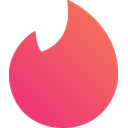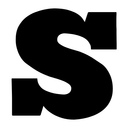This guide has been crafted from the collective experiences and insights of our website's community members across Canada. Through ongoing feedback, tips, and updates from LGBTQ+ travelers and locals alike, we maintain this as a current and practical resource. We're grateful to our active community members who regularly contribute their knowledge to keep this information accurate and relevant.
A Gay Guide to Canada
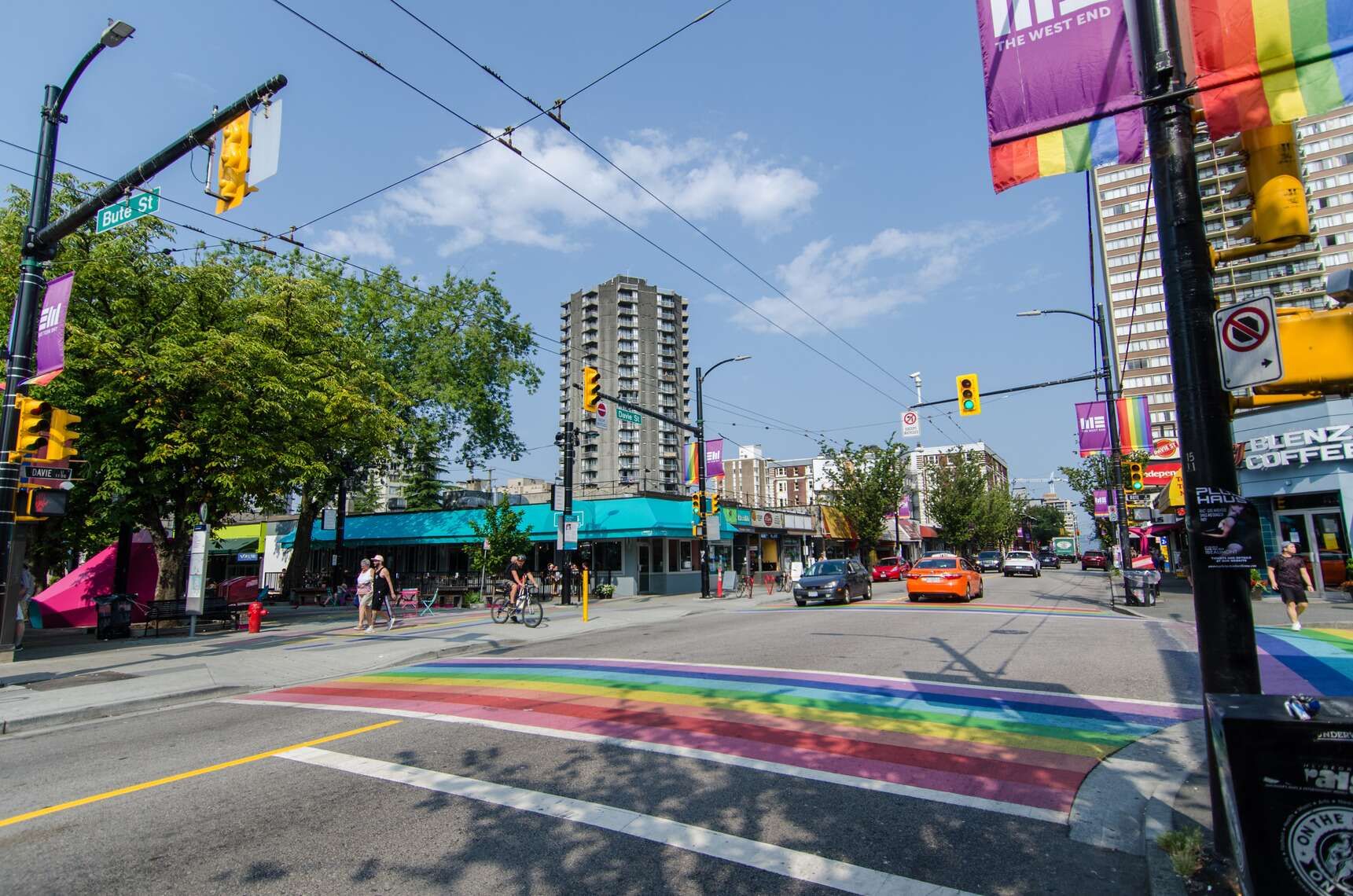
Cultural Background
Canada stands as one of the world's most progressive nations regarding LGBTQ+ rights. Having legalized same-sex marriage nationwide in 2005, Canada was the fourth country globally to do so. Major cities like Toronto, Vancouver, and Montreal have thriving gay communities, with Toronto's Church and Wellesley village being one of North America's most prominent gay neighborhoods. The country's commitment to diversity is reflected in strong anti-discrimination laws covering sexual orientation and gender identity in employment, housing, and public services. Since 2017, gender identity has been explicitly protected under human rights legislation, and conversion therapy was banned nationwide in 2022.
Safety Overview
Canada offers exceptional safety for LGBTQ+ travelers, though awareness of your surroundings remains important. Most comfortable areas include:
- Toronto's Church-Wellesley Village
- Vancouver's Davie Village
- Montreal's Gay Village (Le Village)
- Ottawa's Bank Street
- Halifax's North End
Exercise slightly more caution in:
- Remote rural areas
- Some suburban regions late at night
- Certain areas of larger cities after dark
Specific safety concerns: While overall very safe, be aware of dating app meetups - always choose public places for first meetings. In club scenes, particularly during pride events or major festivals, watch your drinks and belongings. Hate crimes are rare but can occur, particularly in less urban areas.
Dating Scene
The Canadian dating scene tends to be more relationship-oriented than in many other countries, though casual dating is also common. Dating apps are widely used across the country, with usage patterns varying by region. Most profiles are in English, though in Quebec you'll find a mix of French and English. Common apps include:
- Grindr - Popular nationwide
- Tinder - Widely used for dating
- Scruff - Popular especially in bear/alternative communities
- Sniffies - Growing popularity in big cities, more direct
Dating culture varies between cities - Toronto and Vancouver tend to be more reserved initially, while Montreal has a more European, forward approach. Coffee dates are standard for first meetings, and flaking last-minute is considered quite rude. Canadians generally appreciate direct but polite communication about intentions.
| Slang | What it means |
|---|---|
| Suggest a new slang by | |
There is no specific gay slang for Canada, however knowing french slang if you visit montreal is a must. You can check the table in the France section. The US slang should also help US article
Major Gay Cities
Toronto
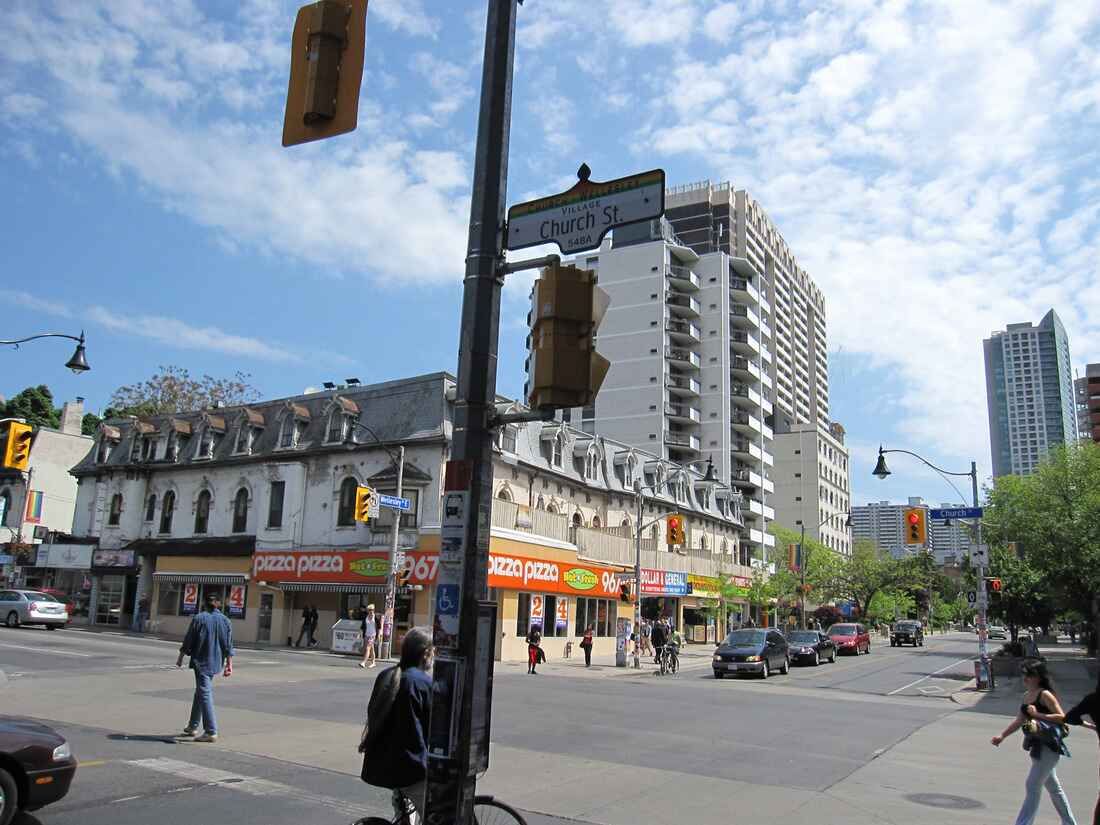
The heart of Canada's gay scene centers around Church and Wellesley Village, locally known as "The Village." Key highlights:
- Woody's and Crews & Tangos for iconic drag shows
- Pride Toronto (June) - One of the world's largest pride celebrations
- Hanlan's Point Beach - LGBTQ-friendly clothing-optional beach
- Late-night food at Crews Kitchen or Fran's Restaurant Best time to visit: June for Pride, or July-August for warmest weather
Montreal
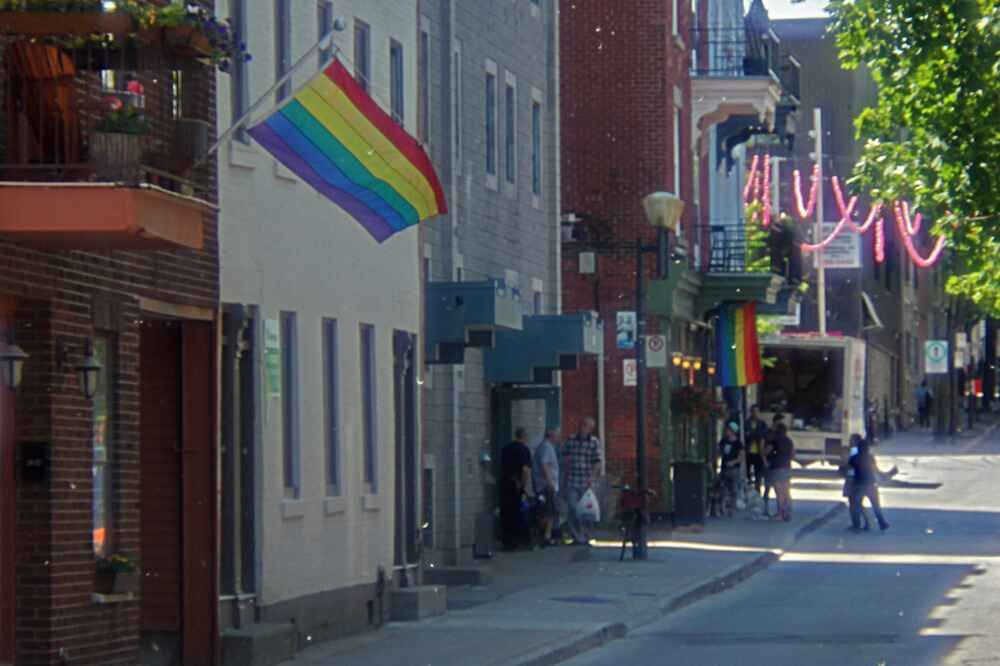
The Gay Village (Le Village) is the largest gay neighborhood in North America. Notable spots:
- Sky Complex - Massive multi-floor club complex
- Cabaret Mado - Famous drag venue
- Pedestrian street (May-September) - Pedestrian street with art installations and kisoke
- Community bars with a lot of different themes (Montreal has a big pup community for example)
Best time to visit: May-September when the village is pedestrian-only
Vancouver
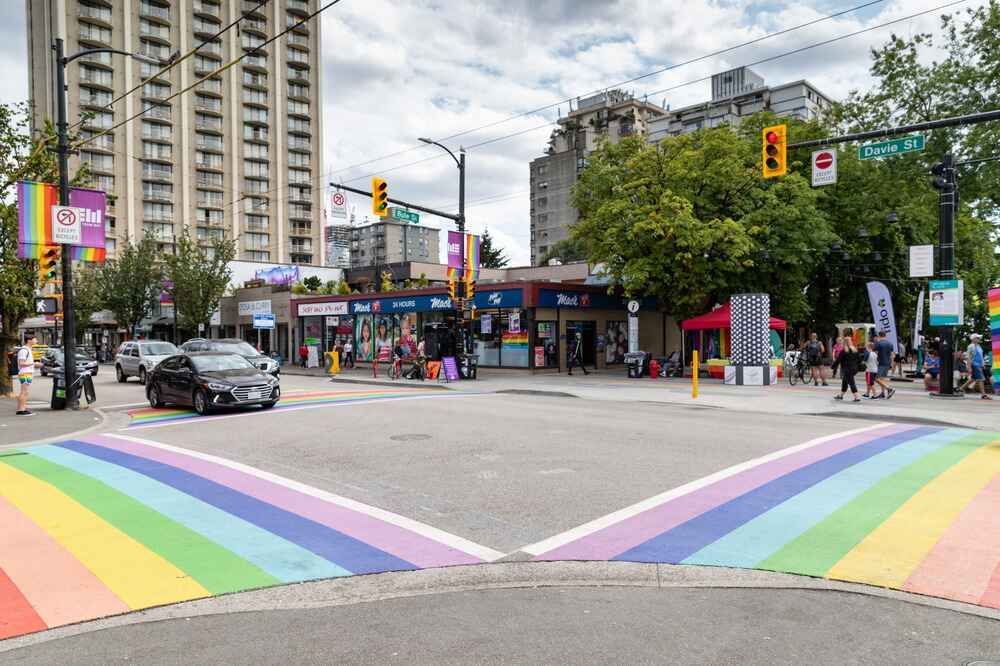 Davie Village in the West End is the main gay hub:
Davie Village in the West End is the main gay hub:
- Numbers Cabaret - Long-running gay club
- Celebrities Nightclub - Popular for their weekend parties
- English Bay Beach - Gay-popular public beach
- Pumpjack Pub - Busy bear/leather bar Best time to visit: July-August for best weather and Pride
Ottawa
While smaller than other scenes, Ottawa has a welcoming LGBTQ+ community:
- Bank Street Strip - Main gay area
- Lookout Bar - Primary gay venue
- Nature & Pink Lake Trail - Popular gay beach in nearby Gatineau Park
- Capital Pride (August) - Growing pride celebration Best time to visit: August for Pride and optimal weather
Pro Tips:
- Montreal tends to be more European in vibe, with later nightlife
- Toronto's scene is more spread out beyond the village
- Vancouver's community is very outdoor-focused
- Ottawa's scene is smaller but more tight-knit
- All cities have active gay sports leagues if you're staying longer
Sexual Health & Safety
Canada's healthcare system makes accessing sexual health resources straightforward, even for visitors. Most supplies are readily available at:
- Pharmacies (many open late or 24/7)
- Sexual health clinics
- Community health centers
- Major supermarkets
- Sometimes in gay venues, but don't count on it. You may find vending machine in the bathroom but they are often empty.
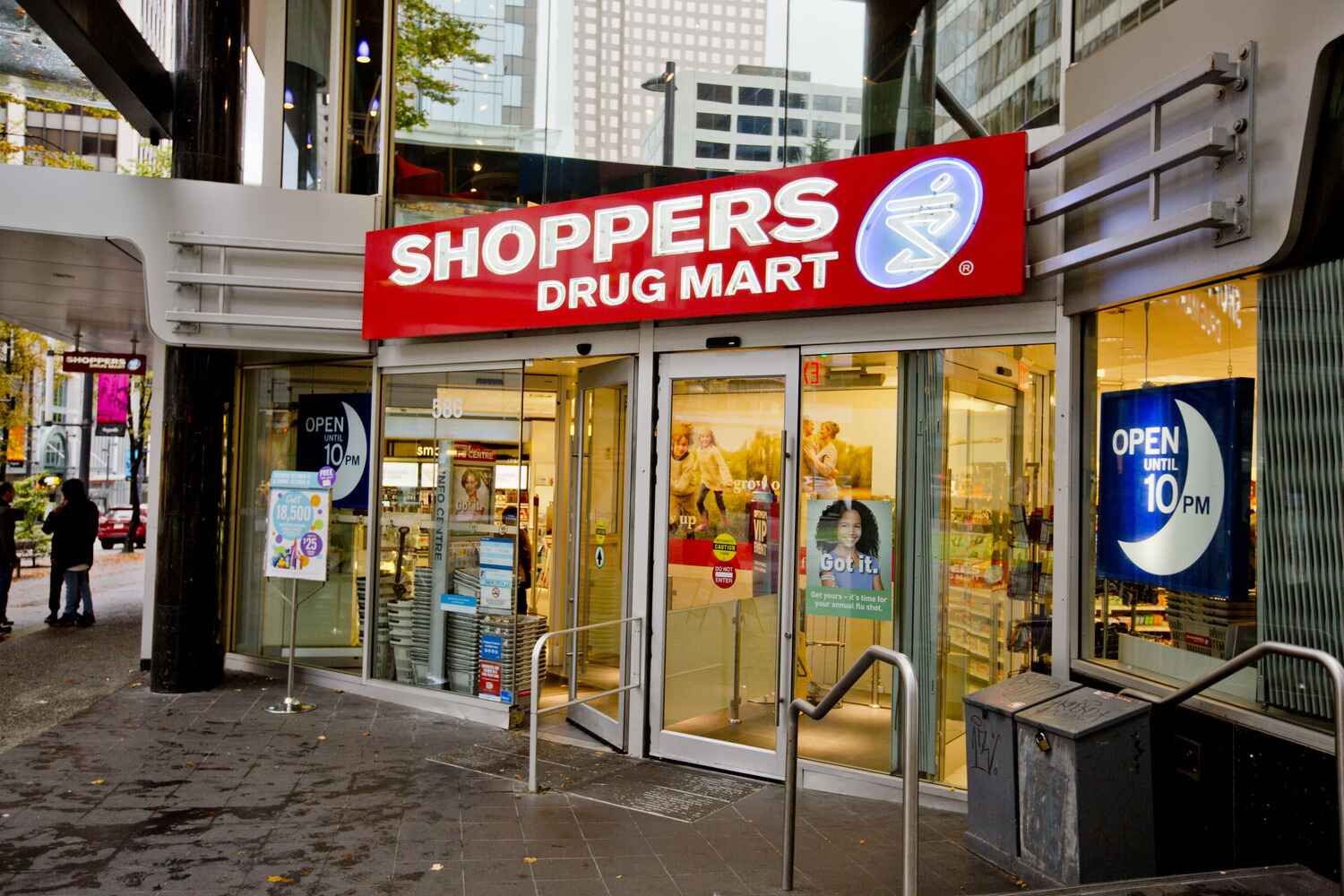
HIV prevention and treatment are taken seriously, with PrEP available through most provincial health plans (though visitors should bring their own supply). Testing is free and accessible at numerous locations in major cities.
Emergency & Health Services
- Emergency Services
- 911
- LGBT Youthline
- 1-800-268-9688
- Rainbow Health Ontario
- 416-324-4100
- Trans Lifeline
- 1-877-330-6366
For urgent situations (like potential HIV exposure), Canadian hospitals will help regardless of insurance status. Key emergency info:
- Hospital emergency rooms (24/7): Dial 911
- Post-exposure treatment (PEP): Available at any ER within 72h. Make sure you explain your problem properly, sometimes ER can be crowded and you may wait 10-12 hours.
- Tourist insurance strongly recommended to cover costs
- Free STI testing available at walk-in clinics
Important: Bring enough regular medications for your stay plus extra. While Canadian pharmacies stock everything, you'll need a local prescription to buy most medications, which requires seeing a doctor (expensive without insurance).
Important: While Canada's healthcare system is excellent, visitors should have comprehensive travel insurance. Without it, medical care can be expensive. Bring adequate supplies of any regular medications, as transferring prescriptions from other countries can be complicated. Canada's healthcare can be slow, especially in Quebec - most clinic requiers an appointement so ER is the only option for something important.
 GAY TRAVEL TIPS
GAY TRAVEL TIPS 
